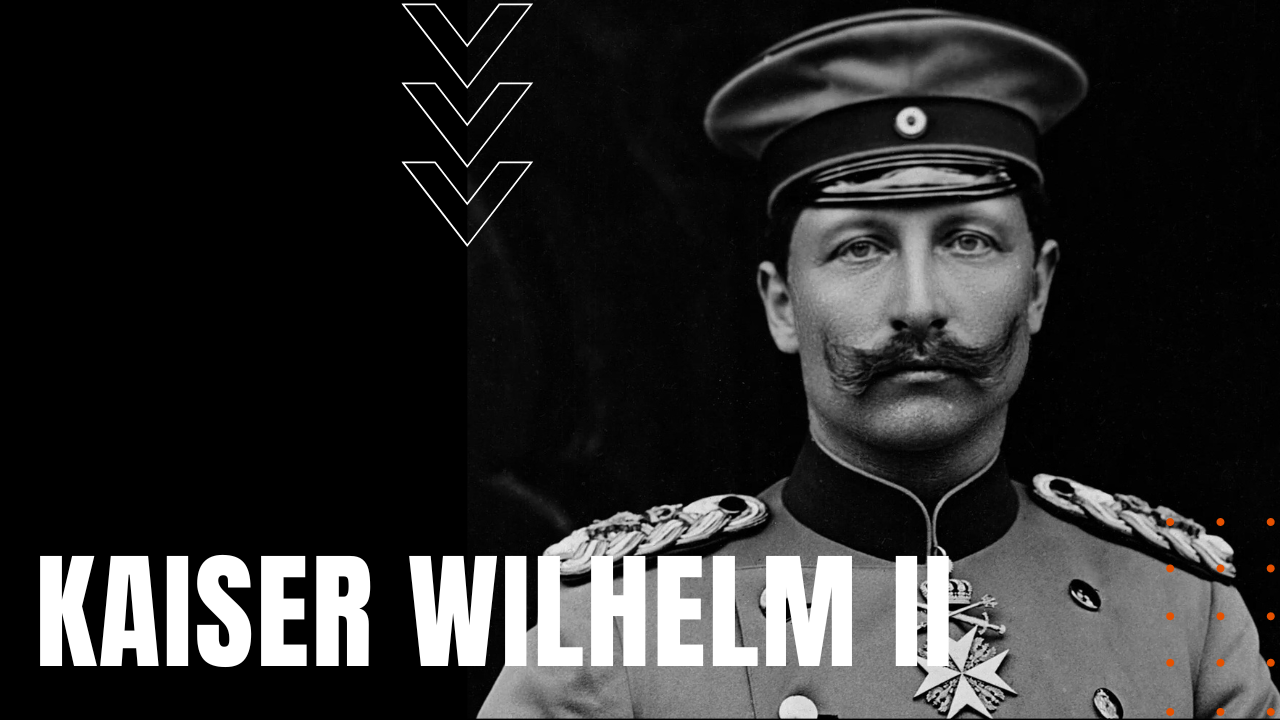Kaiser Wilhelm II

Born in 1859 Potsdam Germany—Queen Victoria’s firstborn grandchild—Wilhelm the 2nd’s close ties with Britain on his mother’s side had a profound influence over his later political maneuvering as Kaiser or Emperor of the German Empire. His left arm made useless and small by a birthing trauma, at twelve years of age, his father, Frederick the 3rd, became king of Prussia, instilling a fierce determination in young Wilhelm to win “a place in the sun” for Germany.
Notorious Temper
Possessed with a sharp mind and an even sharper temper, Wilhelm the 2nd developed a lifelong interest in science and technology while studying at the University of Bonn, wedding Princess Augusta Victoria of Schleswig-Holstein in 1881, for a union that welcomed the birth of seven children. When Wilhelm was 29 years of age, his father was crowned Kaiser Frederick the 3rd, and after his father passed away from throat cancer just four months into his reign, Wilhelm took the thrown on June 15th, 1888.
New Course for Germany
Two years later, Wilhelm announced his so-called “New Course,” for Germany, when he broke ties with the “Iron Chancellor” Otto Von Bismarck, who had led German politics since the 1860s, bitterly predicting that Wilhelm would lead Germany to ruin. Meddling in foreign affairs with his emotions rather than strategic diplomacy, Wilhelm further damaged his reputation as a world leader during the Eulenburg-Harden affair of 1907, which suggested that many of his inner circle friends were gay, while his reputation was further tarnished by the Daily Telegraph affair of 1908, when he offended the British in a newspaper interview, by stating “you English are mad, mad, mad as March hares.”
Pressured into World War One
After World War One broke out following the 1914 assassination of Austrian archduke Franz Ferdinand, Wilhelm at first skirted the notion of war against her European neighbors, eventually succumbing to pressure from his generals by declaring war on Russia and France, at the same time informing his military leadership that “You will regret this, gentlemen.”
Puppet for German Generals
While Kaiser Wilhelm the 2nd carried the title of commander-in-chief of the German military throughout the First World War, many historians consider Wilhelm nothing more than a puppet figurehead over a military dictatorship led by generals Paul von Hindenburg and Erich Ludendorff, and when Wilhelm’s prophesy came true with Germany’s eventual surrender, Wilhelm abdicated the thrown on November 8th, 1918, living out the remainder of his life in exile in the Netherlands, until his death from a pulmonary embolism on June the 4th, 1941, just weeks before Hitler’s invasion of the Soviet Union, making the life and shaky politics of Kaiser Wilhelm the 2nd, a major instigator in the war to end all wars.
